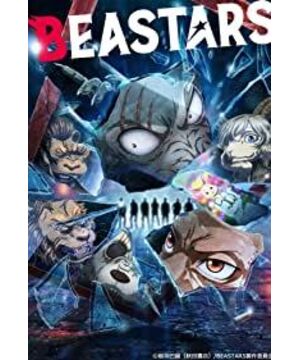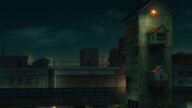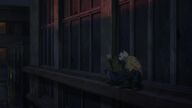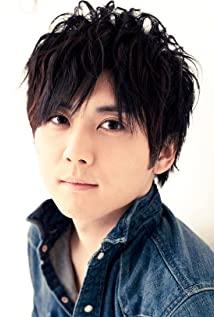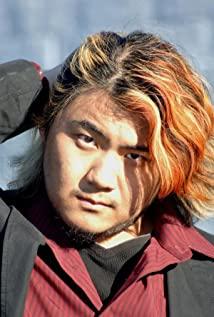It is not so much that animals are like people, or that people are a kind of animals. All animal anthropomorphic stories are essentially about people and human society, but they are just enlarged or exaggerated versions of human society.
This "Animal Rhapsody" is a very interesting animal anthropomorphic social fable.
The story shows a peaceful but conflicted society. Although carnivores and herbivores all live together, the general direction is to pursue common prosperity, but there are undercurrents everywhere, eliminating the element of eating and killing, between herbivores and carnivores, between individuals of the same species, between upper and lower classes , contradictions between the sexes and between the same sex exist. In such an environment, some animals keep their own way, and some animals act recklessly. Co-prosperity protects everyone, but co-prosperity also makes everyone have to restrain some of their animality. Herbivore cannot show fear to meat eaters, and meat eaters cannot express desire for herbivores. Even if everyone is unhappy, they still have to stay together. .
Such a setting is really very close to human society. Isn’t our human society also living in a different hell even if others are indeed hell?
However, the difference between animal society in the story lies in human society, which is probably because most of the characteristics of human beings have to be understood in detail, but the differences between animals are easier to see, because blood, background, race, and habits are all scientific It proves that instinct is written in popular science books, without privacy, without cover, as if fatalism is there on the forehead.
You are a wolf, you show your fangs, and others can't think you are a wolf. You are a deer, and it is difficult for others not to treat you as a deer. You are a rabbit and you are in heat all the year round, and it is very likely that some people think you are hot. Because the physical characteristics of individual animals cannot be concealed, while giving others an illusion, it may also give oneself a sense of shame.
Similar to ABO, exposure makes it easier for animals in this world to label, preconceived, and because these labels have features behind them, labeling is a natural behavior.
The results of it? Although the story has not yet shown a very bad result, I think it can be speculated that there is a similar routine to human society. Passers-by only look at labels, not individuals, not reality, prejudice and stereotypes are flying all over the sky, hatred and resentment Rapid reproduction, everyone is shouting their own truth, but no one is studying the truth of the individual. As a result, words such as political correctness and natural instinct have become tools used by wicked people. The general public will probably only simplify the problem and classify it as a group. Irreconcilable contradictions, the so-called common prosperity is so shaky, let alone understood by individuals.
It can be seen that the society in the story is a society of "I misunderstand others, and others misunderstand me". In this society, there are social norms and political correctness, while instinct and nature exist in the body and mind of animals. Some of the stories in the story Animals choose consciously or unknowingly between society's expectations and their own desires. There are many characters in the story, and it is impossible to talk about them one by one. I want to talk about them. I think it is better to talk about two characters after three episodes, Regus and Louie, the lonely deer and the gentle wolf.
Louie, the solitary stag, combines the role of the solemn and irritable Kaolin Flower. He brings his own BGM every time he appears, and he also likes the wall, and also likes to watch the wolf's fangs, which is very powerful. The role is contradictory, but it is still easy to understand. Although Louis is a powerful person in animal society, he should be stupid, but he hates being treated with a low eyebrow and pleasing to the eye. He is a carnivore and cannot be rough with herbivores. Politically correct vested interests, but they hate carnivores being tamed by political correctness and ask them to be more wild. But in private, he is also afraid of carnivores. He is not a god and will be injured, but he has always played the role of a strong man, which is probably the ideal image in his heart. The protagonist, through his own strength, eliminates the comity of others to him, and believes that his strength does not need others to kneel to prove it.
As mentioned above, Louis comes with his own BGM. The BGM here is an exaggerated BGM with a special sense of drama. This is probably intentional. It not only matches his pomp as a big star young master to create dramatic effects, but also implies him. In the stage of life, the identity of the "actor" and the exaggerated role-playing in front of others is Louis' persistence and bravery. It can be seen that under the arrogance and even narcissism of the traditional adult male deer is the image of integrity and purity of the traditional deer.
Unlike Louie, who strongly hopes to be the protagonist, Regus, the real protagonist in the story, he is a transparent man. As a wolf, he is completely lacking in wolf nature, and he is more than Buddhist, so gentle that I almost thought he was a dog. . Grace doesn't want to be the center of attention, she doesn't want to show her strength, she doesn't mind being misunderstood, she doesn't try to explain herself, she lives a very standard and casual life. He is not a lonely wolf. He also has friends and girls he likes. He is very ordinary. He even did not review for some things before the exam like you. But the most powerful thing might be that he didn't use violence for himself when he was completely under control, and he didn't want to fight with others, but he would show his fangs to protect others and yell to maintain order. His resistance to social stereotypes is not as strong as that of Louis. He is not only a small and transparent team, but he may not have thought of being the protagonist of his own life. He looked at society ignorantly, and treated others more softly and low-key.
Both Regus and Louie belong to the school's drama club. This setting is really interesting. The "drama club" is a place for "acting". They are all actors who play roles in society. One is the brilliant protagonist, the other It's behind the scenes of obscurity. That remark from Regus to Louie neatly connects the two actors. "The strength of the wolf cannot bring hope, but your strength is meaningful".
This line is really good. The strength of an aggressive person cannot bring hope, but your strength without aggression can bring hope. No matter how strong the strong are, they cannot bring hope to the world. It is the strength of the weak that can bring hope to the world. It can be translated into these meanings in human speech translation. That is the initial stage that is more suitable for co-prosperity development. After all, people had stereotypes at that time, and they also needed heroes in stereotypes as idols, but idols played by such roles should not always be needed. "Meaning" is not what the author meant. After all, although the protagonist is Louis on the stage in the story, Regus is the protagonist in the setting of this story.
I would think that a lot of discrimination, prejudice, and prejudice in the story are just backgrounds. The story focuses more on an individual’s choice about his own position in society. Don't explain yourself, or find a suitable way out for your own nature.
I see that the word "nature" is used in many interpretations. There is still a little difference between the two terms, nature and instinct. Probably, nature contains far more than instinct. Instinct is to maintain the behavior pattern we need in our daily life. The response when threatened, but people are no longer threatened or less threatened, then maybe we should think more about how to choose our nature, choose to liberate that part, and control that part.
I personally watched three episodes and felt that the author's point of view is that there is nothing wrong with having fangs in the mouth. The true liberation of nature is not biting people all over the street, or putting away the fangs and holding the tail, or passively accepting the society's stereotypes about yourself. It's not about playing a complete resistance to role-playing Play, but using yourself to find your own position.
View more about Beastars reviews


